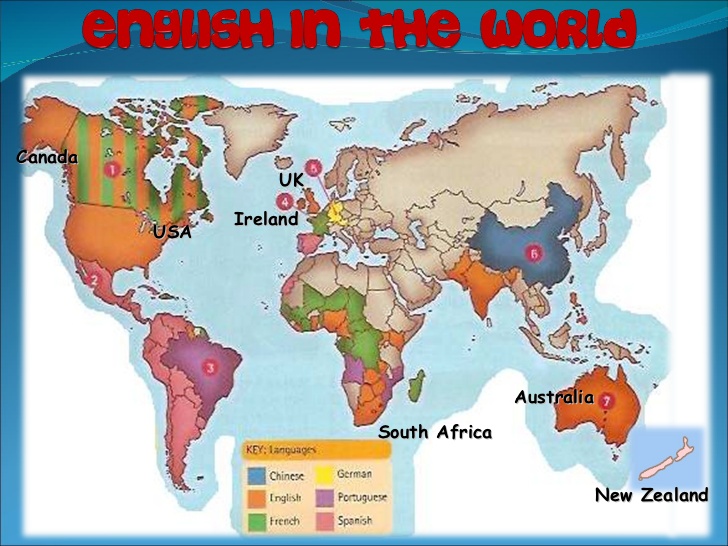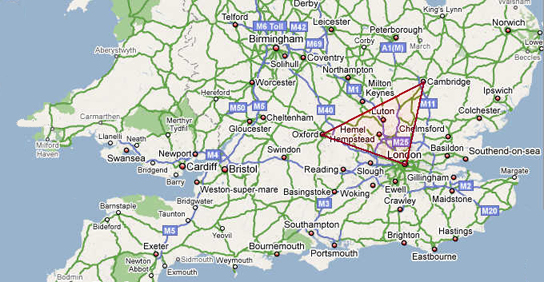日本人が学校や英会話スクールで学ぶ標準英語(Standard English)は、Received Pronunciation(RP、ときにRespected Pronunciation)と呼ばれるイングランド上流階級の訛と深く結びついています。しかし標準英語=RPではありません。RPはいわゆる上流階級の訛(アクセント)に過ぎず、標準英語は他の方言(たとえば、ヨークシャー、リバプールのスカウス、超難解と言われるスコットランドのハイランドなど)にも適用できる無色透明なルールブックのような存在です。辞書が標準英語で書かれているのは、標準英語なら誰もが参照しやすいからです。
今回は「じゃあ、標準英語と深く結びついたRPってどんな訛(アクセント)なの?」という疑問に答える記事となります。
今回は以下の記事をソースに使用します(対訳形式)。
Rp: a Social Accent of English(RPはお国柄を持たない透明な訛)
Received Pronunciation, or RP for short, is the instantly recognisable accent often described as ‘typically British’. Popular terms for this accent, such as ‘The Queen’s English’, ‘Oxford English’ or ‘BBC English’ are all a little misleading. The Queen, for instance, speaks an almost unique form of English, while the English we hear at Oxford University or on the BBC is no longer restricted to one type of accent.
Received Pronunciation(RP)は聞いた瞬間に「典型的にブリティッシュ」だとわかる英語の訛(アクセント)です。RPにはクイーンズ・イングリッシュ、オックスフォード・イングリッシュ、BBCイングリッシュなど、いくつか有名なあだ名がありますが、どれも少々誤解を招く呼び方と言えるでしょう。たとえば、クイーンは他の誰とも違う話し方をしますし、現在オックスフォード大やBBCで話されている英語は特定のアクセントに縛られていません(※グローバル化による社会変化は、階級性を帯びていた言語をどんどん「フラット化」させています)。
RP is an accent, not a dialect, since all RP speakers speak Standard English. In other words, they avoid non-standard grammatical constructions and localised vocabulary characteristic of regional dialects. RP is also regionally non-specific, that is it does not contain any clues about a speaker’s geographic background. But it does reveal a great deal about their social and/or educational background.
RPは方言ではなく訛です。RP話者は「標準英語」という訛で話しているのです。どういうことかといえば、RP話者は正格でない文法要素を避け、特定の地域方言にローカライズされた語彙を使わないようにしているのです。その意味でRPは地域に依存せず、話者がどこの出身かがわかるようなヒントを持ちません。その代わり、話者の社会的背景(階級や地位)、教育的背景(出身校)はおのずとわかる仕組みになっています。
※方言(dialect)と訛(accent)の違いについては次の記事の冒頭で扱っています。

Well-known but not widely used(有名な割に話されていない)
RP is probably the most widely studied and most frequently described variety of spoken English in the world, yet recent estimates suggest only 2% of the UK population speak it. It has a negligible presence in Scotland and Northern Ireland and is arguably losing its prestige status in Wales. It should properly, therefore, be described as an English, rather than a British accent. As well as being a living accent, RP is also a theoretical linguistic concept. It is the accent on which phonemic transcriptions in dictionaries are based, and it is widely used (in competition with General American) for teaching English as a foreign language. RP is included here as a case study, not to imply it has greater merit than any other English accent, but because it provides us with an extremely familiar model against which comparisons with other accents may be made.
RPは学習者数の多さ、言及される頻度の高さではダントツNo.1の口語英語の一変種ですが、日常的にRPを話す人はUK全体の2%しかないと言われます。スコットランドとアイルランドではほとんど誰も喋らず、ウェールズでもかつての特権的な地位を失いつつあります。その意味ではブリティッシュ訛ではなくイングランド訛と呼ぶのが適当でしょう。RPは生きた訛であると同時に、言語学上の理論的概念でもあります。辞書の音写(発音記号など)はRPをベースにしていますし、第二外国語としての英語の二大勢力はこのRPと標準米語(General American)です。本サイトにRPを含めているのは、他の英語の訛より学ぶ価値が高いからではありません。誰もが親しんでいる訛の標準モデルなので、訛の相互比較を行う上で便利だからです。
What’s in the name?(名前の由来)
RP is a young accent in linguistic terms. It was not around, for example, when Dr Johnson wrote A Dictionary of the English Language in 1757. He chose not to include pronunciation suggestions as he felt there was little agreement even within educated society regarding ‘recommended’ forms. The phrase Received Pronunciation was coined in 1869 by the linguist, A J Ellis, but it only became a widely used term used to describe the accent of the social elite after the phonetician, Daniel Jones, adopted it for the second edition of the English Pronouncing Dictionary (1924).
The definition of ‘received’ conveys its original meaning of ‘accepted’ or ‘approved’ — as in ‘received wisdom’. We can trace the origins of RP back to the public schools and universities of nineteenth-century Britain — indeed Daniel Jones initially used the term Public School Pronunciation to describe this emerging, socially exclusive accent. Over the course of that century, members of the ruling and privileged classes increasingly attended boarding schools such as Winchester, Eton, Harrow and Rugby and graduated from the Universities of Oxford and Cambridge. Their speech patterns – based loosely on the local accent of the south-east Midlands (roughly London, Oxford and Cambridge) — soon came to be associated with ‘The Establishment’ and therefore gained a unique status, particularly within the middle classes in London.
言語学的に言うとRPは若い訛です。1757年にサミュエル・ジョンソン博士が”A Dictionary of the English Language”を執筆したときにはまだ存在していません。知識人社会においてさえ「推奨に足る」発音方式が確立していない現実を踏まえ、ジョンソン博士は彼の辞書に発音の項目を設けませんでした。Received Pronunciationという用語は1869年にA.J.エリスが考案しました。しかし広く使われるようになったのは音声学者ダニエル・ジョーンズが当時の上流階級の訛を、”English Pronouncing Dictionary”第二版の標準発音に採用して以降です。
RPのreceivedは、received wisdom(一般通念)と同様に、acceptedやapprovedと同じ意味を持ちます(※「広く一般に認められた」「人口に膾炙した」といった意味)。RPの起源は19世紀ブリテンのパブリックスクールとユニバーシティ(※イングランドのパブリックスクールは大学進学を目指す子弟のための寄宿制の私立中・高一貫校のこと。アメリカでは公立学校を意味する。アメリカの私立学校はprivate schoolまたはindependent school)に遡ります。ダニエル・ジョーンズは当初、この上流階級のみに盛んになっている訛をPublic School Pronunciationとしていたのです。それは19世紀を通じて、ウィンチェスター、イートン、ハーロウ、ラグビーなどの寄宿学校経由でオックスフォードかケンブリッジへ進む支配層や特権階級の子弟が増えたからです。彼らの言葉遣いは、大まかに言ってミッドランズ南東部(ロンドン、オックスフォード、ケンブリッジ)の訛をベースにしていましたが、瞬く間にエスタブリッシュメントのことばと見なされるようになりました。とくにロンドンの中間層の間ではRPが孤高の地位を獲得していったのです。
ミッドランズ南東部
Broadcaster’s choice(放送用の規範的発音)
RP probably received its greatest impetus, however, when Lord Reith, the first General Manager of the BBC, adopted it in 1922 as a broadcasting standard – hence the origins of the term BBC English. Reith believed Standard English, spoken with an RP accent, would be the most widely understood variety of English, both here in the UK and overseas. He was also conscious that choosing a regional accent might run the risk of alienating some listeners. To a certain extent Reith’s decision was understandable, and his attitude only reflected the social climate at the time. But since RP was the preserve of the aristocracy and expensive public schools, it represented only a very small social minority. This policy prevailed at the BBC for a considerable time and probably contributed to the sometimes negative perception of regional varieties of English.
RP普及の最大の追い風になったのは、1922年、BBC初代会長のジョン・リース男爵がRPをアナウンサーの標準発音に採用したことです(ここからBBCイングリッシュというあだ名が生まれました)。RP訛で話す標準英語がUK内外で最も広く理解される変種になるとリース会長は考えたのです。逆に特定地域の訛を採用すれば、リスナーの一部を疎外する恐れがありました。リース男爵の意思決定は当時の社会風土を考えればごく自然な選択だったと言えます。ただ、RPは貴族社会と高額なパブリックスクールを領分とする、ごく狭い社会的少数のための言語でした。BBCの発音方針が長く維持されおかげで、他の地域の英語変種に対してはネガティブなイメージが育まれたきらいがあります。
There’s more than one RP(RPのタイプ)
A speaker who uses numerous very localised pronunciations is often described as having a ‘broad’ or ‘strong’ regional accent, while terms such as ‘mild’ or ‘soft’ are applied to speakers whose speech patterns are only subtly different from RP speakers. So, we might describe one speaker as having a broad Glaswegian accent and another as having a mild Scottish accent. Such terms are inadequate when applied to Received Pronunciation, although as with any variety of English, RP encompasses a wide variety of speakers and should not be confused with the notion of ‘posh’ speech.
The various forms of RP can be roughly divided into three categories. Conservative RP refers to a very traditional variety particularly associated with older speakers and the aristocracy. Mainstream RP describes an accent that we might consider extremely neutral in terms of signals regarding age, occupation or lifestyle of the speaker. Contemporary RP refers to speakers using features typical of younger RP speakers. All, however, are united by the fact they do not use any pronunciation patterns that allow us to make assumptions about where they are from in the UK.
RPを基準に見ると、特定の地域の発音のクセを多用する話者はしばしば「訛が強い」「訛がきつい」と言われ、RPとあまり違わない言葉遣いや発音をする話者は「ちょっと訛っている」「軽く訛っている」と言われます。たとえば、前者は「グラスゴー訛がきつい」、後者は「軽くスコットランド訛がある」と評されるわけです。RPにこのような形容を当てはめるのは不適切です。RPも他の訛と変わらず多種多様な話者を擁します。いわゆるposhな喋り方(※poshは「上流階級ぽい」「上品な」の意味)と混同すべきではありません。
大ざっぱに分けるとRPは3種類あります。貴族階級や旧世代の人の話すRPをConservative RP、主に若い世代が話すRPをContemporary(またはAdvanced)RP、そして年齢、職業、ライフスタイルなどに依存しないタイプをMainstream RPと言います。どのタイプにも共通しているのは、彼らの訛を聞いても、彼らがUKのどこ出身かを推測する手がかりは見つからない点です。
RP today(RPの現在)
Like any other accent, RP has also changed over the course of time. The voices we associate with early BBC broadcasts, for instance, now sound extremely old-fashioned to most. Just as RP is constantly evolving, so our attitudes towards the accent are changing. For much of the twentieth century, RP represented the voice of education, authority, social status and economic power. The period immediately after the Second World War was a time when educational and social advancement suddenly became a possibility for many more people. Those who were able to take advantage of these opportunities — be it in terms of education or career — often felt under considerable pressure to conform linguistically and thus adopt the accent of the establishment or at least modify their speech towards RP norms.
In recent years, however, as a result of continued social change, virtually every accent is represented in all walks of life to which people aspire — sport, the arts, the media, business, even former strongholds of RP England, such as the City, Civil Service and academia. As a result, fewer younger speakers with regional accents consider it necessary to adapt their speech to the same extent. Indeed many commentators even suggest that younger RP speakers often go to great lengths to disguise their middle-class accent by incorporating regional features into their speech.
RPも訛の例外ではなく経時的な変化を経験しています。初期のBBCアナウンサーの発音をいま聴けば、すごく古くさく響きます。RPの変化とともに国民の受け止め方も変わりつつあります。20世紀のほぼ全体にわたってRPは有識者、権威者、社会的地位、財力の象徴でした。第二次世界大戦の直後の時期は、高等教育と立身出生の機会が突然降ってわいたように多くの国民のもとにもたらされた時代でした。学術やビジネスの世界で新たなチャンスを活用した人々は言語上の同調圧力に晒されて、エスタブリッシュの訛を採り入れ、自分の話し方をRPの規範に近づるのが当然でした。
しかし近年は社会情勢の変化に伴い、社会の各方面であらゆる訛が話されるようになっています。スポーツ、芸術、メディア、ビジネスは言うに及ばず、かつてのRPの牙城であるシティや官界、学界も例外ではありません。当然、昔みたいに自分の訛をRPに合わせる必要を感じる若者はどんどん減っています。識者の観察によれば、若いRP話者はわざと地方出身者ぽい話し方や発音を採り入れ、自分のミドルクラス訛を「偽装する」労を惜しまないそうです。
<記事引用終わり>






コメント